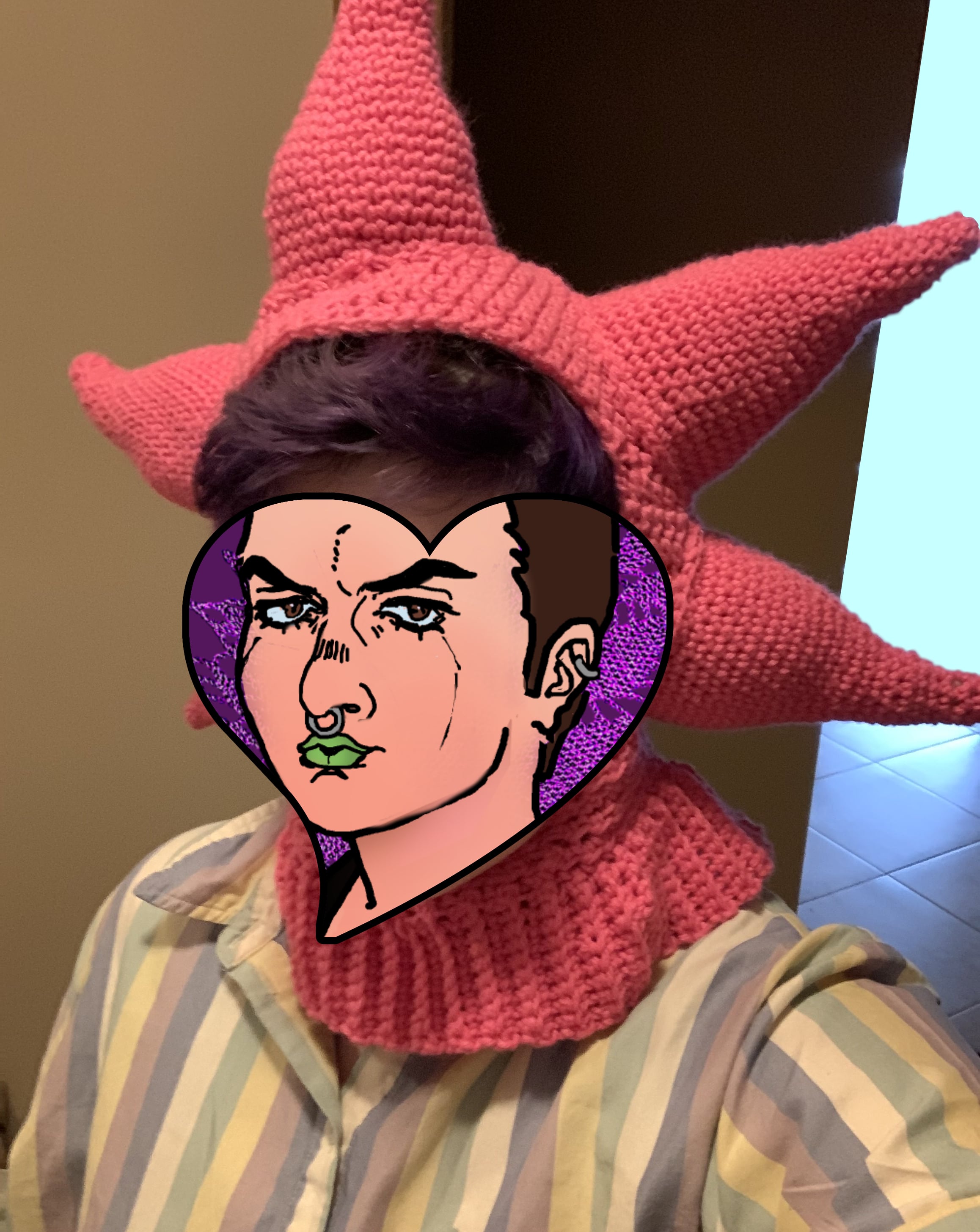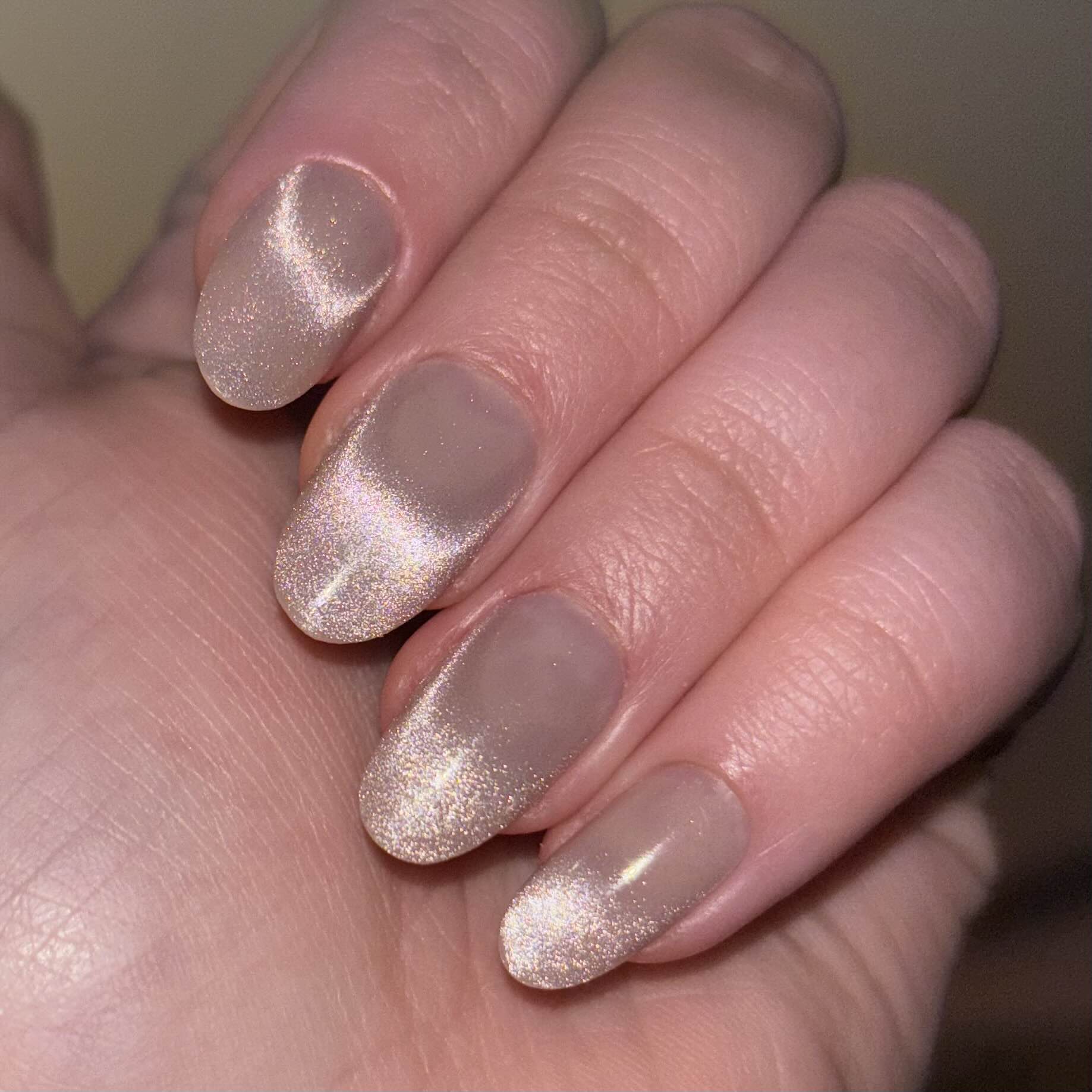44. An argument for the traumatized
2025-04-24: On topic with feeling self-conscious, this morning, I was thinking about how I sometimes feel like some weird, walking stereotype. Like, in certain corners of the internet (and day-to-day life), it's frowned upon to to talk about your trauma as an adult. Or, I see artist-types write about it and talk down on themselves for not being over how their daddy treated them as a kid, and so here they are whining about it on the internet, and that's clearly pathetic.
I think it's really important we're able to tell our stories. Especially growing up and likely being told that we are crazy and that our reality didn't happen as it did. Family members colluding with the abuser as a way to cull favor leaves you feeling alone, confused, betrayed, and crazy.
I hate this prevailing notion that we just need to "get over it already," grow up, and forgive the people who hurt us as children. It's no big deal. Except, it typically is a big deal! And I'd wonder how many of those people who ascribe to that thinking actually have some deeply repressed trauma that bleeds into their own life, and through their desire to "get over it," they never actually do.
We're talking about abuse to children here who are among the most vulnerable and impressionable. Childhood is supposed to set you up for a well-rounded adulthood, so what happens when that doesn't happen? What happens when you're neglected, for example, and weren't taught basic skills needed to be independent, like cooking, money management, consent, boundaries, and healthy conflict resolution? You're left incredibly behind and significantly weakened.
Whoever says, "What doesn't kill you makes you stronger," is full of big, steaming piles of shit. I despise you. Childhood abuse did not, in fact, make me and many others stronger, but substantially weaker. Like, great, I'm scared to send an email to my professor out of the (ir)rational fear that he's going to suddenly lash out at me, because you know who would just randomly lash out at me? My dad. You know who avoids conflict most of the time for fear I'll be shut down, talked over, and told I'm crazy? Give it your best guess.
It's highly important for us to be able to tell our stories of what happened to us, to be fully witnessed and validated, and have us operate with the knowledge that trauma is not something that easily goes away. In fact, it'll stay with some of us forever. A condition like complex PTSD is forever; it's merely something to be managed and attacked with a growing set of coping skills.
I think some people highly overestimate what a therapist is able to do for a traumatized client, and masking your discomfort in this common "boundary-setting" phrase, "Hey, don't 'trauma-dump' on me! Bring it to a therapist," is not achieving what you think it is. To me, this is just another sign of the breakdown of community. We need each other. You're really going to relegate every little uncomfortable thing to an institution that largely wants you better so you can go back to being a productive worker? Fuck that.
From anecdotal experience, there aren't enough genuinely qualified trauma therapists out there, as well as everyday community resources and systems in place to make the profound difference a lot of us need. How can you expect some of us to move from "surviving to thriving" when we are constantly stressed with the prospect of homelessness? How do we move from "surviving to thriving" when we're doing it all alone and that's not enough? How can you blame the people doing everything they possibly can to get better- dozens of medication trials, years of therapy, self-help books, hospitalizations, etc- and still blame them for not being better when it's clear the system built around us is fucking us all in the ass so completely?
So, yeah, I'm going to talk about my "daddy issues." It doesn't make me a lesser adult to do so, and you're making the world a worser place for me and you if you insist otherwise. Let traumatized people carve out a space for themselves if you so want them to heal and "just get over it."

Thank you to
Ocrevol for the valuable, and pointed quote.
Edit: If therapy works for you, that's great! But please do recognize that there are some it doesn't work for, and actively hurts. The therapist, whether they like it or not, is in a position of power as they are purported as a knowledgeable, qualified body, and sometimes they fail to even realize that (which is dangerous). I also find, at large, that therapy is a bandaid on a bullet hole wound.
Therapists may be able to equip you with coping strategies, but they are unable to change the systematic issues that are hurting you. In fact, and I can only talk anecdotally, I find many therapists are unable to even recognize that most of our "pathologies" are because of systemic issues such as racism, economic inequality, capitalism etc and instead blame the individual for their "illnesses." What I'm saying is, I think a lot of how our bodies are responding to our current conditions make a lot of sense, and it's less abnormal than we make it out to be.
Also, I speak about "From Suriving to Thriving" more as a colloquial term than a reference to Pete Walker's book. I completely forgot that was the title. I do, however, have that book in my possession and have been wanting to read it, but I haven't been in the mood to venture into the weeds and suffer through it, lest it drum up old feelings, which is likely.

 2025-04-11: I was looking through old images and I found this from three Halloween's ago. I don't normally dress up, but I was working a shift on Halloween and the others were dressing up. So, I freestyled this- hold your seahorses-
2025-04-11: I was looking through old images and I found this from three Halloween's ago. I don't normally dress up, but I was working a shift on Halloween and the others were dressing up. So, I freestyled this- hold your seahorses-  2025-04-02: Being mentally ill is so rough sometimes (for many reasons, LOL). But, in regards to having a site, if I'm just a little too tired or extra anxious, I get the compulsion to delete parts of the site or the whole thing. Like, tunnel vision. I fail to recognize all that I built and how much it has meant to me. I'm just so good at
2025-04-02: Being mentally ill is so rough sometimes (for many reasons, LOL). But, in regards to having a site, if I'm just a little too tired or extra anxious, I get the compulsion to delete parts of the site or the whole thing. Like, tunnel vision. I fail to recognize all that I built and how much it has meant to me. I'm just so good at 
 2025-03-21: I forgot I placed a hold for Tokyo Ghoul volumes 4-6 until I woke up to an email that they were already in at the library. They came from a city an hour away, and I realize I may have held these books before.
2025-03-21: I forgot I placed a hold for Tokyo Ghoul volumes 4-6 until I woke up to an email that they were already in at the library. They came from a city an hour away, and I realize I may have held these books before.

 I'm really not much for light-hearted, comedic animes that are also episodic in nature. I'd prefer if there was more of an overarching plot. It ever so slightly reminds me of Fullmetal Alchemist (2003) with their adventures, but Al and Edward have a clear goal from the beginning. I know Trigun has its serious moments, but pasted over it is the same levity that Vash carries himself with. I know there's a thick irony in the great Vash the Stampede who leaves destruction in his wake being this dorky guy who's lucky to come out of each altercation unscathed but, like the other characters, I have a hard time accepting him for who he shows us to be. Granted, he wouldn't be Vash if he was all serious, now, would he?
I'm really not much for light-hearted, comedic animes that are also episodic in nature. I'd prefer if there was more of an overarching plot. It ever so slightly reminds me of Fullmetal Alchemist (2003) with their adventures, but Al and Edward have a clear goal from the beginning. I know Trigun has its serious moments, but pasted over it is the same levity that Vash carries himself with. I know there's a thick irony in the great Vash the Stampede who leaves destruction in his wake being this dorky guy who's lucky to come out of each altercation unscathed but, like the other characters, I have a hard time accepting him for who he shows us to be. Granted, he wouldn't be Vash if he was all serious, now, would he? A note I wrote to myself via discord message after hearing gymnopédie no. 1 in an ad of all things. I loathe the everyday barrage of asinine advertisements, but this one sounded beautiful. I have a weakness for this song. Do note, I accidentally spelt his name wrong in the screenshot.
A note I wrote to myself via discord message after hearing gymnopédie no. 1 in an ad of all things. I loathe the everyday barrage of asinine advertisements, but this one sounded beautiful. I have a weakness for this song. Do note, I accidentally spelt his name wrong in the screenshot.